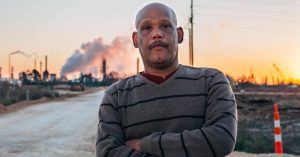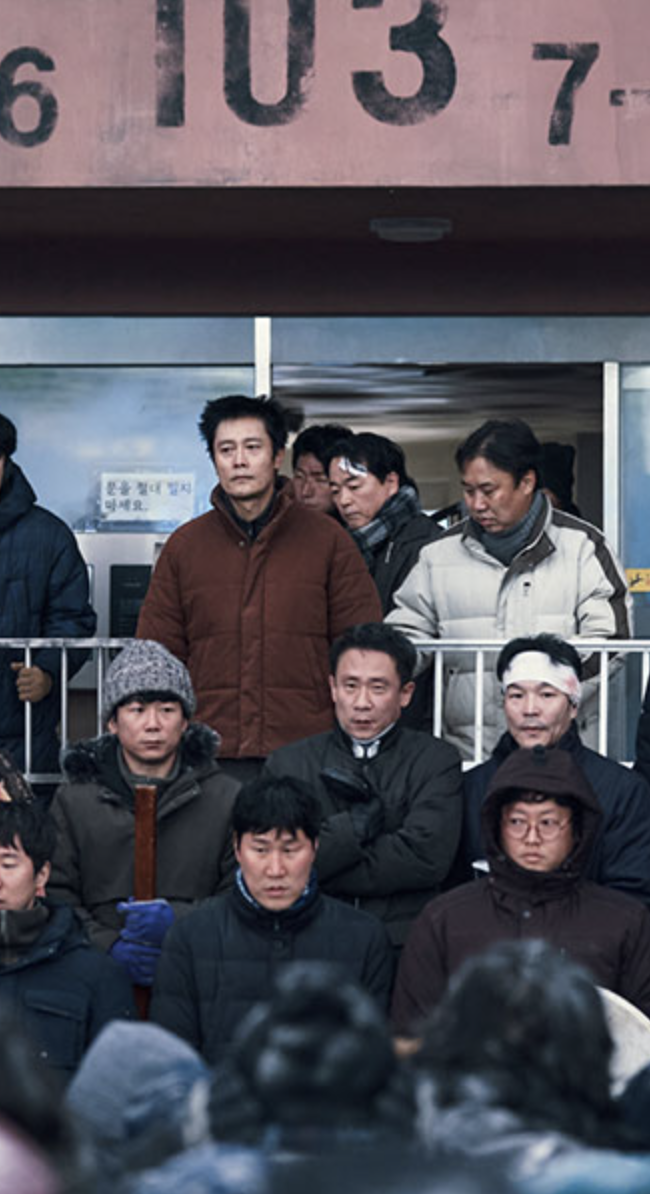That’s a Wrap on the 2019 Bend Film Festival!
 The dream of the 90s is alive and well in Bend, maybe even a bit more so than Portland. With the last remaining Blockbuster Video in the world (yes it has that Blockbuster smell) to the arcades, record shops and craft beer scene, it is one heck of a place to gather filmmakers from across the country to embark on a weekend journey of good films and great parties and panels. Even the voice of Arrested Development (Ron Howard) dropped in to celebrate.
The dream of the 90s is alive and well in Bend, maybe even a bit more so than Portland. With the last remaining Blockbuster Video in the world (yes it has that Blockbuster smell) to the arcades, record shops and craft beer scene, it is one heck of a place to gather filmmakers from across the country to embark on a weekend journey of good films and great parties and panels. Even the voice of Arrested Development (Ron Howard) dropped in to celebrate.
The 16th annual BendFilm Festival was held last weekend with over 70 films. This was my first time at the festival despite hearing rave reviews for years from filmmakers on the circuit, and boy, were they right. Between excursions to Blockbuster, a fantastic VIP lounge, thoughtful panel discussions, parties and the beautiful fall weather, it was hard to force yourself inside to watch the movies. But I dove in watching Native Wisdom: The Peoples of Eastern Oregon, I Want My MTV, Parasite and a whole bunch of short films.
The films I explored could not have been more different. In Native Wisdom, the director shared with us tribal people in Oregon that are working to save the planet from ourselves. In I Want My MTV, we flashed back to my childhood and the origins of the Music Television network and how it evolved from all white rock singers to Yo! MTV Raps and Headbanger’s Ball and so much more.
I was too young at the time to realize that David Bowie really helped drive the point home for MTV that they were limiting their audiences to great musicians due to their stance on a certain type of rock n’ roll. I know their change which allowed young white kids like me to discover Run DMC and so many more helped spark a generation of creative thinkers who visually tell stories. While the film is a lot of fun, it also doesn’t touch upon the animation artists that helped create the tone of MTV but could easily be an entire other documentary. But it was nice to have Alan Hunter, one of the original VJs and a big supporter of Sidewalk Film Festival on hand to answer questions.
Everything at the film festival is pretty spread out except the VIP lounge and Tower Theatre directly downtown. The festival holds screenings in two or three towns surrounding the area from makeshift screening areas to independent theaters to Regal Cinemas. But the weather is pretty for those who want to walk from where they are staying, which most filmmakers are hosted by locals in their homes, while some of us stayed in hotels close by to the action. But if you have accessibility issues, like I do, then you do have to rely on Uber as the festival transportation is only for specific drop offs. But taking Uber trips around Bend let me learn more about the town and perspective of residents on the ever-growing population of their beloved space. A lot of drivers were excited to see tourists from the film festival but wish so many would stop moving in to Bend. But with over 300 days of sunshine, it is sort of a magical unicorn in the upper Northwest where you expect rainy days.
A highlight for me over the weekend was hearing an all-female producer panel on Saturday with Christine Vachon moderating.
Vachon, producer of over 120 credits including my favorite Velvet Goldmine, started the panel by disrupting the plan of women talking about being women filmmakers and instead called it a producer’s panel to much applause from the audience.
Moderated by IndieWoman of the Year honoree Christine Vachon (given out at the screening of Carol during the festival) panelists included Aimee Lynn Barneburg (Clementine), Alex Creswick (The Blackout), Stacey Davis (Pie in the Puss), and Catherine Rierson (Mossville: When Great Trees Fall)

A still from Catherine Rierson’s “Mossville: When Great Trees Fall”
The panel kicked off with a discussion of what it means to be a producer which varied in definition but Vachon’s metaphor of being the person to throw the party but not get invited to it and then get the bill for it afterwards prompted quite a few understanding laughs from the filmmakers in the audience.
Amongst the discussion topics was how the various platforms impacts producing. For many of the panelists, radical attempts to disrupt the paradigm are daunting but worthy of changing the system. While many of the producers on the panel were newer in the industry and adept at considering theatrical versus VOD versus episodic, Barneburg said no matter what the story think of your budget and, “look at what is realistic and where your story is going to live.”
But with most of the major players in the streaming world, particularly Netflix with a lack of transparency on numbers, knowing how to define success outside of the theatrical box office for today’s films and episodic material is a real challenge. While most of the producers said they don’t always collect as much data as they would like, especially in the age of no transparency, begs the question – how does one measure success with today’s model?
Rierson, a documentary filmmaker, said that distributing on the Internet has allowed her to take on more films “as monetizing is impossible in documentary” but for her it is about cultivating an audience which festivals and then a digital release allow her to do.
An audience member asked how to handle festival strategy and several panelists answered that it depends on each project and what the goals are but to allow those to inform fest strategy. Creswick said she submitted to Bend because she knew they are known for good taste and taking risks in programming. Barneburg added to keep a spreadsheet which made me happy as I try to drill that into filmmakers that I teach at the University of Mississippi.
Audiences also asked the best time to jump in as a producer which all agreed at the script level when possible. The producers also gave advice on working with directors.
- – “Don’t work with jerks” Davis said.
- – “When it is a set I control, things like fights never happen.” Creswick said after sharing a story of a director and DP getting into a fist fight on a set she had to work on.
- – “Pick someone who is going to work harder than you,” Barneburg said.
But the support of women filmmakers was prevalent throughout the fest with the Independent Women for Independent Film group raising funds to support the travel of female filmmakers and sponsoring their screenings to celebrating women like Vachon to programming quality films made by women and the panel. Erik Jambor, the head programmer, has long been a champion of women directors and has a scary programming intuition that I am always impressed with the results. I’ve followed Jambor from Sidewalk Film Festival to Indie Memphis and now to Bend and he remains one of the top programmers in the country for me in my last 16 years on this circuit.
The winners determined by the jury members were announced Saturday night at the awards ceremony in a Boys and Girls Club which was turned into a pretty fun affair.
My team (Matt Lopez and Warren Etheredge) gave out awards in 3 categories:
• Sometimes, I Think About Dying, directed by Stefanie Abel Horowitz, won the special jury award for Narrative Short.
• The Neighbors’ Window, directed by Marshall Curry, won the $500 Best Narrative Short award.
• Fuck, directed by Vern Hass (University of Southern California), won the $500 Best Student Short award.
• Wave Hands Like Clouds, directed by Marga Laube, won the $500 Best of the Best of the Northwest award.
Then Lopez and I served on the animation jury and gave:
• A Line Birds Cannot See, directed by Amy Bench, won the $500 Best Animated Short award.
• The Phantom 52, directed by Geoff Marslett, won the special jury award for animated short.
Documentary jury Skizz Czyzk and Alyssa Fedele as well as Hammer to Nail’s Don Lewis gave:
• All on a Mardi Gras Day, directed by Michal Pietrzyk, won the $500 Best Documentary Short award.
• Little Miss Westie, directed by Joy E. Reed and Dan Hunt, won the special jury award for documentary short.
• Kifaru, directed by David Hambridge, won the $1,000 Best Documentary Feature award.
The Environmental jury made up of Brian Lindsron and Ian Mccluskey chose:
• Eating Up Easter, directed by Sergia M. Rapu, won the $500 Best Environmental/Outdoor Adventure Feature award.
The Indigenous jury Laronn Katchia and Isaac Trimble gave out two awards:
• Native Wisdom: The Peoples of Eastern Oregon, directed by Tim Keenan Burgess & Lawrence Johnson, won the special jury award for Best Native Knowledge.
• Attla, directed by Catharine Axley, won the $500 Best Indigenous Feature award.
And announced as part of a jury mash up of all features the winner:
• Once Upon a River, directed by Haroula Rose, won the $500 Best Directing award.
The Narrative Feature jury Ted Speaker, Falk Hentschel and Amy Dotson awarded:
• Clementine, directed by Laura Jean Gallagher, won the $1,000 Best Narrative Feature award.
• Clementine, cinematography by Andres Karu, won the Best Cinematography award.
The festival does a Best of Show prize and all feature juries deliberate and pick their choice. This year’s winner was Mossville: When Great Trees Fall directed by Alexander Glustrom.
The festival also celebrated the career of Ron Shelton who began his film career with Bull Durham. At the closing night film the audience award winner was given to Christy McGill’s Ai Weiwei: Yours Truly.
BendFilm Festival is a can’t miss gem on the festival circuit and one to add to your list to submit to for 2020. Learn more here.
Like what you see here on Hammer to Nail? Why not pay just $1.00 per month via Patreon to help keep us going?
– Melanie Addington (@MelAddington)
Guest writer, Executive Director, Oxford Film Festival











